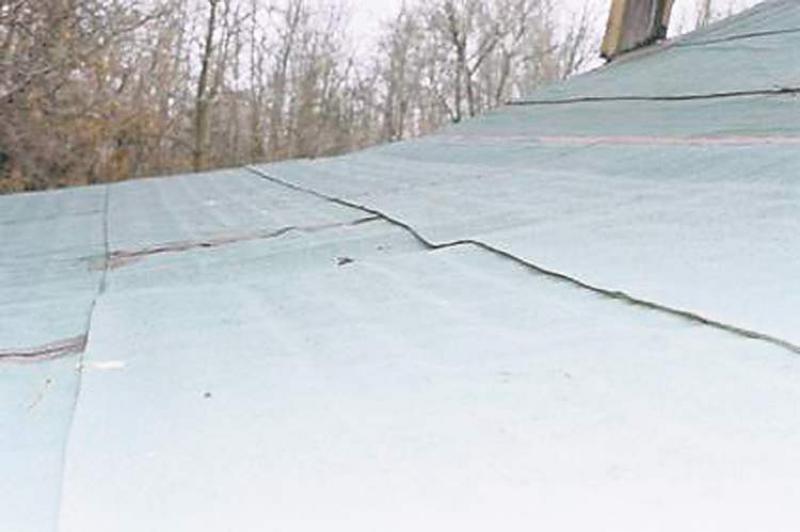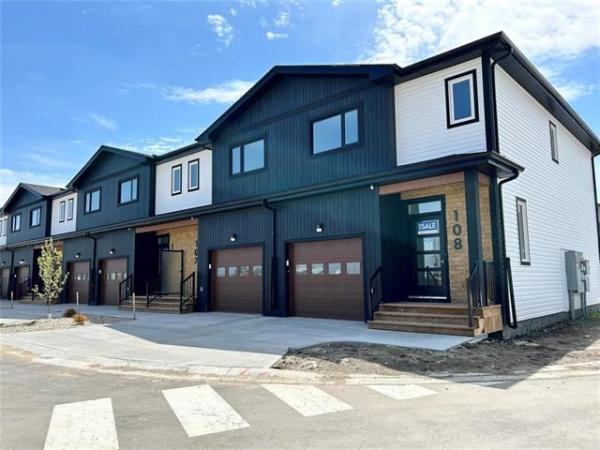
If you need to open an umbrella inside your home during a downpour or snow melt, you may be a victim of one of many fly-by-night shingling companies operating in Manitoba.
"There are no requirements to become a shingler in the province. You need a ticket to cut hair, but anyone with a ladder can go into the shingling business without any training whatsoever," said Andrew Herrod, past president of the Manitoba Shingling Contractors Association (MSCA) and an owner of John Krueger Enterprises Ltd.
Herrod said many homeowners have been badly burned by roofing companies offering cut-rate and, in some cases, cash-only deals. He said workmanship is often slapdash, shingles and other materials can be of inferior grade and warranties are without value as many of these furtive companies vanish or don't have insurance to pay for damage.
"We've seen many cases in which a homeowner's insurance company will refuse to pay for interior damage because it is the roofing company's responsibility to carry insurance to cover these claims."
Moreover, he said that if a person or worker is injured on a job site, the homeowner may be liable because "hook-and-ladder companies generally aren't insured for accidents or injuries to others."
One bright note is that shingle manufacturers such as BP will guarantee the basic warranty as long as the shingles are installed according to instructions on the package, according to Mate Rendulic of Brock White Ltd. in Winnipeg.
Peter Kalinger, technical director of the Canadian Roofing Contractors Association (CRCA) in Ottawa, said the "homeowner's only recourse to an inadequate roofing job is the courts."
He added that, to his knowledge, Quebec is the only province that requires a mandatory apprenticeship program for someone to become a roofer or roofing contractor.
"The CRCA has advocated long and hard to adopt a system similar to one found in Europe and some southeast Asian countries whereby contractors engaged in providing services in a particular area of construction cannot be a qualified, certified or licenced unless they join a designated association," Kalinger said.
If Canada were to implement this type of system, associations such as the CRCA and its provincial affiliates would bear the cost of training and quality-assurance aspects of the trade, he noted.
"Because everyone would have to join the designated association, it would ensure that all contractors in the trade have a skilled workforce and are indeed qualified to work in that activity."
Workers can also be victims in a non-regulated industry. For example, Herrod said there's no way to know whether roofers are being paid a fair wage or receiving extra pay for overtime.
Non-regulation also creates an uneven playing field where professional shingling companies must compete with businesses that often don't pay their share of workers' compensation, employment insurance, taxes or training costs, he added. This allows the cheaters to undercut fair industry prices that reflect the real cost of shingling a roof.
With the emphasis recently placed by the provincial government on safety in the workplace, roofers should be COR-certified, Herrod said. "This is another expense for which professional companies pay."
To be COR-certified, roofers take a course and are required to wear harnesses and other safety equipment on the job. The cumbersome harnesses slow down the shingling process, which in turn increases the cost of completing a roof safely and properly, so many fly-by-nighters don't use them, Herrod noted.
To improve the roofing situation in Manitoba, a provincial advisory committee (PAC) has been formed, to which Herrod and a representative of Red River College have been named.
"As far as I know, a provincial apprenticeship program has been approved by the government," Herrod said. "We will begin to develop a curriculum and write the legislation at our first meeting at the end of October."
Herrod said he expects the first provincial sloped roofer apprenticeship training program to begin in the fall of 2013. While apprenticeship won't initially be mandatory, he said he hopes it will eventually be expanded to include all roofers in the province.
Eileen Ewanchuk, program director for an entry-level shingling training program, said the eighth successive course will be announced soon and begin in February.
Delivered by Red River College in conjunction with the MSCA and funded by the provincial and federal governments, the 10-week course has graduated about a dozen students a year since its inauguration in 2005-2006, she said.
To be eligible for the course, Ewanchuk said people must be on EI, underemployed, an EIA recipient or a lower-income individual or family. The funding comes from the federal government's EI program and is administered by Employment Manitoba, a division of Manitoba Entrepreneurship Training.
In the classroom, students are taught proper shingling techniques and "roofer terminology so they can understand what sort of task a contractor is asking them to do," Ewanchuk said, adding they also receive COR safety training.
The last two weeks of the course are spent apprenticing with a roofing crew from a member company of MSCA.
The students aren't paid for this work but, if they prove capable of performing all the rigorous work required of a shingler, they're guaranteed a job within the industry, she said.
"I started out as a helper on a crew, now I run my own crew with a truck and a trailer," said one graduate in a testimonial. "I will make over $60,000 this year."
Ewanchuk said designating roofing as an apprenticeable trade may not be to everyone's liking, but it will improve the skills of workers entering the industry and help to safeguard the public from disreputable contractors.
If you're looking for a roofing contractor, Herrod said references are usually dependable as "there are a lot of very reliable roofers in Manitoba who are not members of the MSCA."
If you don't have a reference, he suggested calling the MSCA at 204-795-1247 for guidance.




